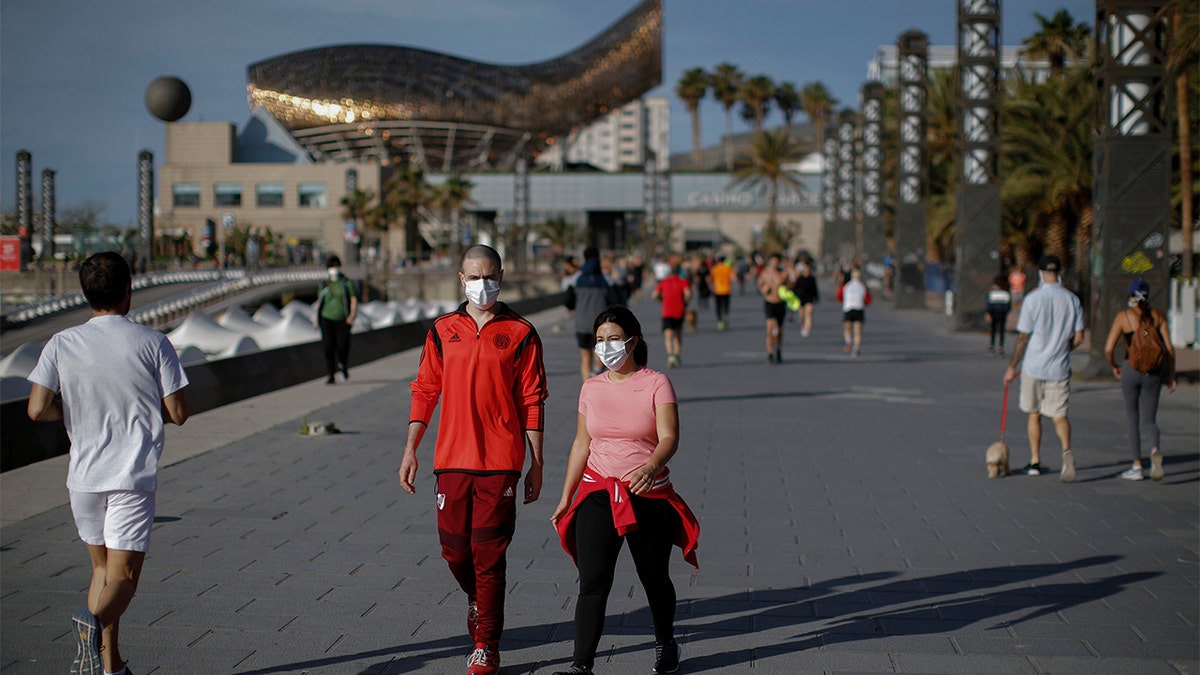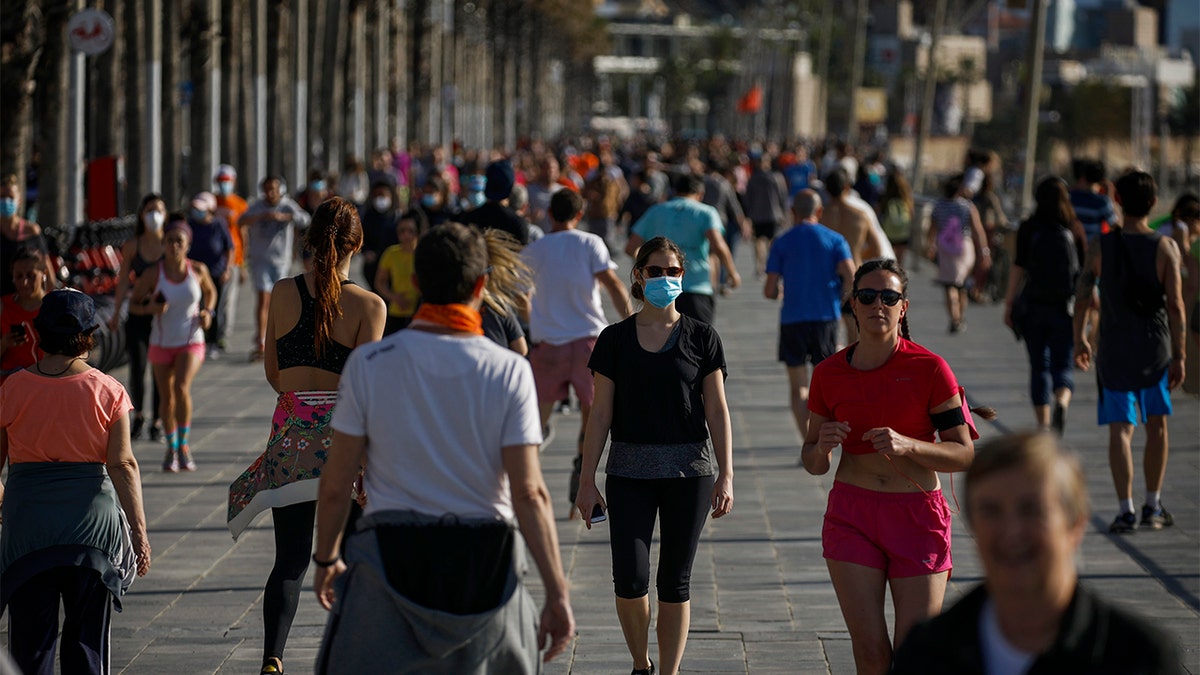Spain surpasses Italy in number of confirmed coronavirus cases
Italy sees its lowest daily death total in weeks. Amy Kellogg reports from Florence.
Get all the latest news on coronavirus and more delivered daily to your inbox. Sign up here.
Thousands flooded the streets for the first time in almost two months as Spain eased national coronavirus restrictions.
Many public areas, such as beaches and parks, are still off limits, but the public otherwise had free reign for exercise. The government designed a schedule by age groups and activities to prevent crowds from forming and exposing the more at-risk population.
CLICK HERE FOR FULL CORONAVIRUS COVERAGE
Individuals and couples who live together aged 14 to 70 can now engage in individual exercise from 6 a.m. to 10 a.m. and 8 p.m. to 11 p.m. People over 70 can go out from 10 a.m. to noon and 7 p.m. to 8 p.m., with one caregiver if needed. Children under 14 may go outside between noon and 7 p.m. for walks with one parent, but they cannot play with other children.
Towns and villages with fewer than 5,000 people are exempt from this schedule.
People tried to respect social distancing, but it was not possible in all areas. Some people even tried to wear masks while running.

People walk along a seafront promenade in Barcelona, Spain, Saturday, May 2, 2020. Spaniards have filled the streets of the country to do exercise for the first time after seven weeks of confinement in their homes to fight the coronavirus pandemic. People ran, walked, or rode bicycles under a brilliant sunny sky in Barcelona on Saturday, where many flocked to the maritime promenade to get as close as possible to the still off-limits beach. People are supposed to respect a 1-measure distance, but the crowds in some spots made that impossible. (AP)
Spain instituted a lockdown on March 14, with only adults allowed to leave home for essential goods and services. Pedro Sánchez, the Spanish prime minister, moved to ease lockdown measures after a week-long decline in total active cases.
“I am convinced that over the coming months, until we have a vaccine, we are going to see more outbreaks (of the virus),” Sánchez said. “What we need to guarantee is that these outbreaks do not put our national health system in danger.”

People exercise in a seafront promenade in this photo taken with a telephoto lens in Barcelona, Spain, Saturday, May 2, 2020. Spaniards have filled the streets of the country to do exercise for the first time after seven weeks of confinement in their homes to fight the coronavirus pandemic. People ran, walked, or rode bicycles under a brilliant sunny sky in Barcelona on Saturday, where many flocked to the maritime promenade to get as close as possible to the still off-limits beach. (AP)
Children enjoyed greater freedom for most of the week before adults were allowed to take to the street for exercise on Saturday.
Spain has detailed a complex rollback plan that will vary by province that will take effect on Monday. The government will require citizens to wear facemasks while using public transport, and it will make masks available for those who do not have them.
The president has said that the 6 million masks will be distributed to transportation, and a further 7 million will be available for Spanish Federation distribution to local provinces and municipalities.
At its peak, Span was the most-infected nation, replacing Italy after the latter was able to flatten the curve. Spain instituted the harshest restrictions, but those efforts managed to reduce the 20% daily increase to less than 1%.
The decrease prevented a total collapse of the Spanish hospital system.
CLICK HERE FOR THE FOX NEWS APP
As of Saturday, Spain recorded a total of 245,567 confirmed cases, and 25,100. Even with the decrease, Spain is still the second-most infected nation after the United States.
The Associated Press contributed to this report.








































